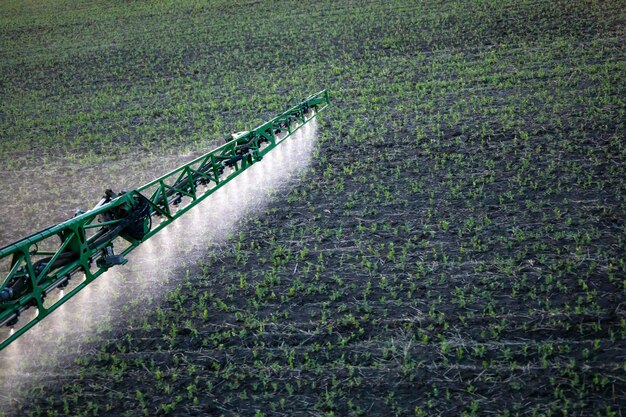Efficient crop nutrition management is vital for achieving optimal agricultural productivity while maintaining environmental sustainability. Among the tools that have revolutionized modern farming, fertilizer injectors stand out as a key innovation, enabling precise delivery of nutrients to crops. These devices are crucial in bridging the gap between advanced agricultural techniques and sustainable farming practices.
What Are Fertilizer Injectors?
Fertilizer injectors are devices designed to mix and deliver water-soluble fertilizers directly into irrigation systems. By integrating fertilizers into irrigation water, these injectors ensure even and accurate distribution of nutrients to crops, enhancing their growth and productivity. This technology is particularly useful in fertigation systems, where irrigation and fertilization are combined into a single, streamlined process.
Precision in Nutrient Delivery
One of the primary benefits of fertilizer injectors is their ability to deliver nutrients precisely to the root zone of plants. Unlike traditional broadcasting methods, where fertilizers are spread across the field, injectors ensure that every drop of irrigation water carries an optimal dose of nutrients. This targeted approach reduces nutrient wastage, minimizes leaching into the soil, and ensures that crops receive the exact nutrients they require at the right time.
Enhancing Efficiency and Cost Savings
By optimizing nutrient application, fertilizer injectors contribute to significant cost savings for farmers. They reduce the need for excessive fertilizer use, lowering input costs while improving crop yields. Additionally, they save time and labor compared to manual fertilization methods. This increased efficiency makes injectors particularly valuable in large-scale farming operations and areas where labor is scarce.
Environmental Benefits
Nutrient management is a critical component of sustainable agriculture. Overuse or misuse of fertilizers can lead to nutrient runoff, causing water pollution and harming aquatic ecosystems. Fertilizer injectors help mitigate these risks by ensuring precise application, reducing the environmental impact of farming practices. This aligns with global efforts to promote environmentally friendly agriculture and protect natural resources.
Versatility Across Crops and Systems
Fertilizer injectors are adaptable to a wide range of crops and irrigation systems. Whether used in drip irrigation, sprinkler systems, or pivot irrigation setups, these injectors can handle different types of water-soluble fertilizers. This versatility makes them suitable for diverse agricultural landscapes, from smallholder farms to large commercial plantations.
Key Considerations for Farmers
To maximize the benefits of fertilizer injectors, farmers need to select the right type and model based on their specific needs. Factors such as the size of the farm, type of irrigation system, and the nature of crops being grown should influence the choice of injector. Regular maintenance and calibration are also essential to ensure the injectors function efficiently and deliver consistent results.
Fertilizer injectors are indispensable tools for modern agriculture, playing a crucial role in efficient crop nutrition management. By enabling precise nutrient delivery, enhancing productivity, and promoting environmental sustainability, they empower farmers to meet the demands of growing populations while safeguarding the planet. As agricultural technologies continue to evolve, fertilizer injectors will remain a cornerstone of sustainable and efficient farming practices.
Join 'Farmers Mag' WhatsApp Channel
Get the latest Farming news and tips delivered straight to your WhatsApp
CLICK HERE TO JOIN






